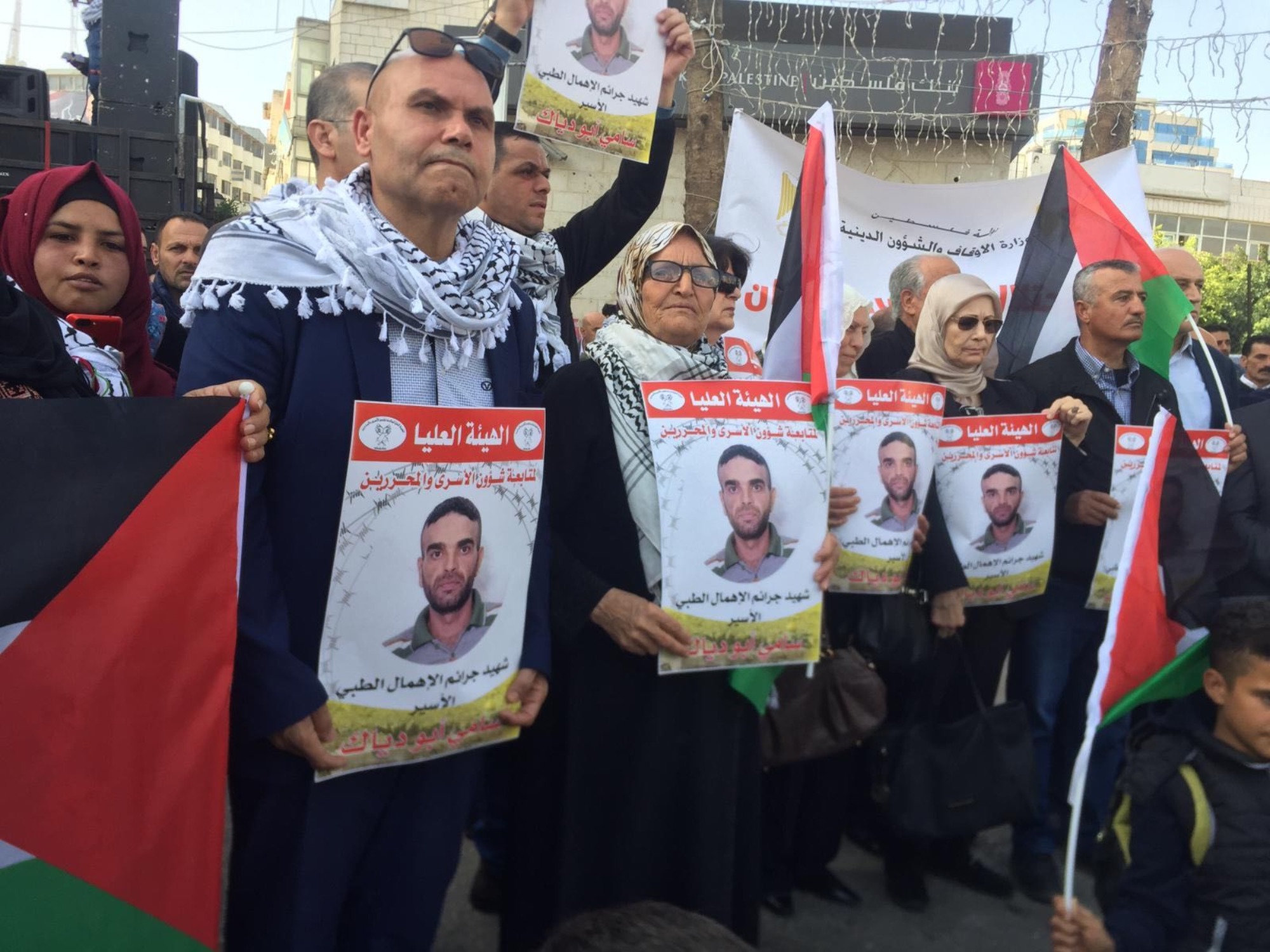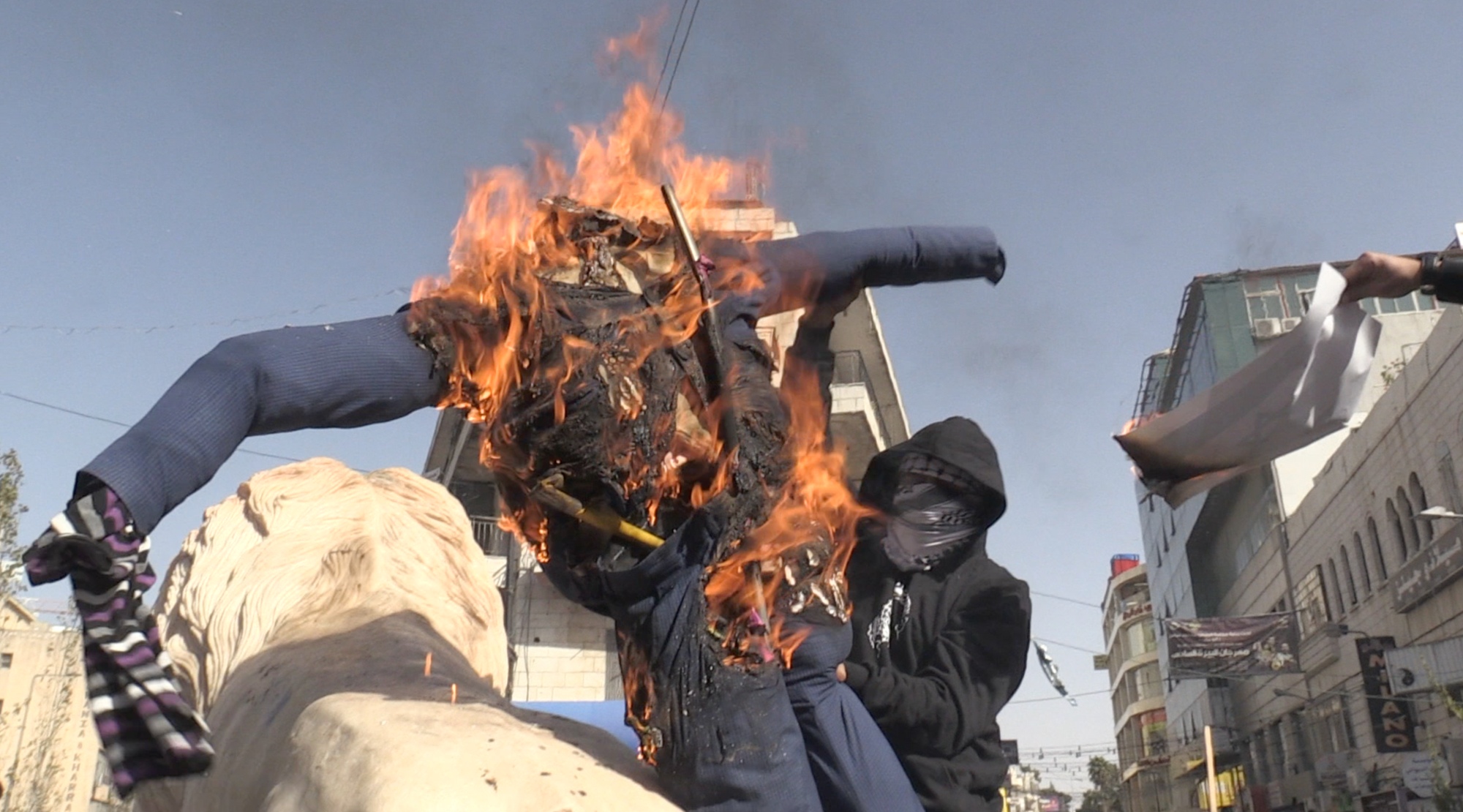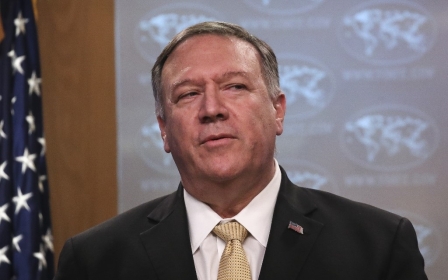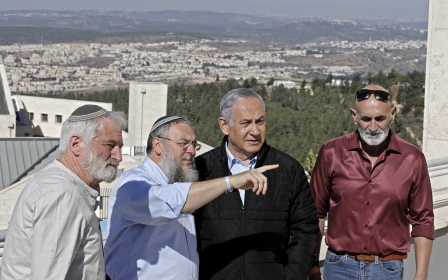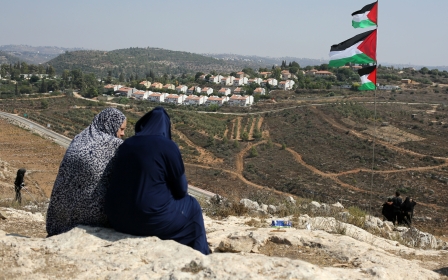Palestinians stage ‘day of rage’ protesting US stance on Israeli settlements
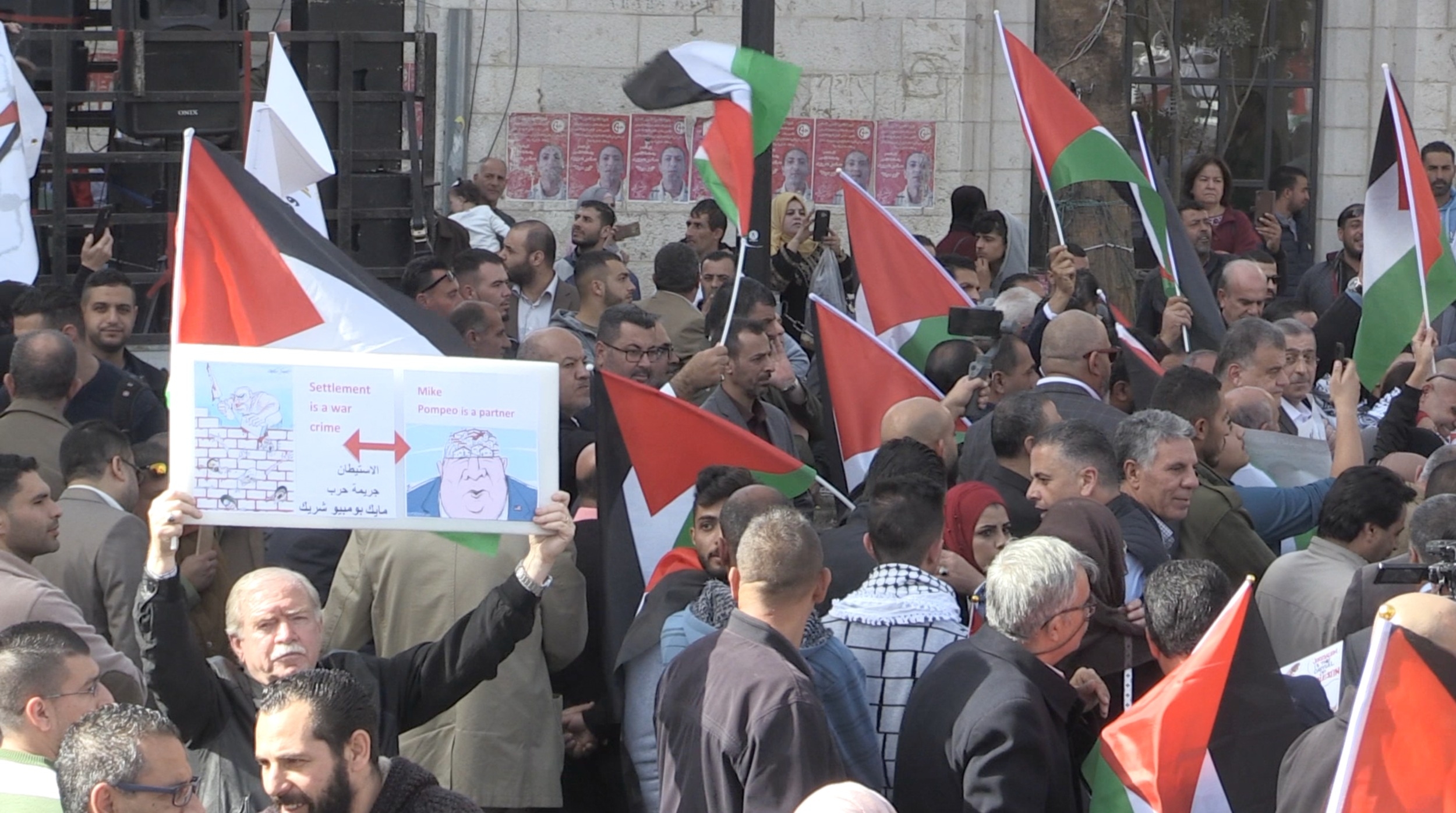
Thousands of Palestinians took to the streets on Tuesday to denounce last week’s announcement by US Secretary of State Mike Pompeo that Washington no longer considered Israeli settlements in the occupied Palestinian territories to be “inconsistent” with international law.
On Sunday, Palestinian political factions announced the planning of a "day of rage" to reject the US decision, calling for demonstrators to gather in Palestinian cities and march towards so-called “friction points” like Israeli army checkpoints and areas close to settlements.
A student march launched from Birzeit University north of the central West Bank city of Ramallah on Tuesday, heading towards the settlement of Beit El, which is built on lands belonging to the Palestinian city of al-Bireh.
Some 3,000 Palestinians took part in the Birzeit march, including Palestinian Authority (PA) officials, political faction leaders, as well as students and school and university staff.
In Ramallah's Manara Square, masked protesters burnt an effigy of US President Donald Trump and an Israeli flag, as a number of speakers stressed their opposition to the American administration’s latest support of Israeli policies, and called for a popular intifada against the Israeli occupation and the US.
New MEE newsletter: Jerusalem Dispatch
Sign up to get the latest insights and analysis on Israel-Palestine, alongside Turkey Unpacked and other MEE newsletters
The Palestinian Red Crescent said at least 63 Palestinians were injured by Israeli forces across the West Bank - including 33 near Beit El alone - during the protests, either due to rubber-coated steel bullets or excessive tear gas inhalation.
“This demonstration aims to send a message to the world that the US stance is aligned with the Israeli occupation and attempts to legalise the theft of Palestinian rights,” Fatah Secretary in Ramallah and al-Bireh Mowafaq Sahwil told MEE.
“From now on, the Palestinian people have no choice with the Israeli occupation and settlers except direct confrontation,” he added. “Demonstrations will not stop here. They will continue.”
Sahwil stressed that Fatah - the ruling party of the PA - would spearhead demonstrations.
“We will raise the slogan of respect for martyrs, including Sami Abu Diyak,” he added, referring to a Palestinian prisoner who died in Israeli custody on Tuesday morning.
Death of a prisoner
The day of rage started only a few hours after news came out regarding Abu Diyak’s death, as the Palestinian succumbed to a three-year battle against intestinal cancer while detained by Israel since 2002, official Palestinian news agency Wafa reported.
Israeli authorities reportedly rejected several requests for Abu Diyak to obtain proper treatment, and later on to be released on compassionate grounds to spend his last moments with his family.
Demonstrators raised photographs of the 36-year old and called for the release of all Palestinian political prisoners held by Israel, with a particular focus on those with medical issues.
“Abu Diyak’s death will not go in vain,” Mustafa al-Barghouti, the secretary general of the National Palestinian Initiative, told MEE. “One day, we will prosecute the fascists who killed Abu Diyak and prevented him from spending the last days of his life with his family.”
Commenting on the US decision to ignore international law with regards to settlements, Barghouti said: “We no longer believe in any of the agreements struck with Israel, because it had torn all of them... Our response to this should be [Palestinian] national unity and starting a comprehensive popular resistance.”
Barghouti said that the PA should end the longstanding division between Fatah and Hamas in order to unite the Palestinian people, stop restraining freedom of opinion and expression, and put an end to the targeting of fellow Palestinians based on their political beliefs.
From Gaza to the West Bank
In Ramallah, the current seat of the PA, demonstrators of all ages told MEE they were angered, but not surprised by the US stance.
“We came today to stand against the Israeli occupation and US decisions,” Mohammed Rajab Khalifa, a 12-year-old scout originally from the besieged Gaza Strip, told MEE.
“They want to occupy our land, expel us from it and build settlements in it. They want to prevent us from reaching Jerusalem and praying at the Al-Aqsa Mosque. We will remain here and we will resist until the occupation ends and freedom is achieved.”
Meanwhile, Kazem al-Hajj Mohammed, a 47-year-old farmer from the Ramallah area village of al-Mughair, was unfazed.
“America is already aligned with the occupation. There is nothing new in Pompeo’s remarks,” he told MEE, before highlighting the struggle of Palestinian villages in Area C - the two thirds of the West Bank under Israeli military control - who face regular attacks by Israeli settlers.
“At a time when the US legitimises land expropriation and settlement, no one stands beside the Palestinians who suffer from settlements,” he added.
For al-Hajj Mohammed, real popular resistance against persistent threats of expropriation materialises through efforts to continue farming and using lands under threat.
“We the farmers call for all sides to gather on lands under threat and remain there, plant them and protect them.”
He criticised the demonstration as a “temporary” reaction.
“We want to start a popular intifada and confrontation everywhere,” he said. “We do not want to make our rage as a temporary and quick reaction, we want it to continue in the face of the Israeli occupation.”
Middle East Eye delivers independent and unrivalled coverage and analysis of the Middle East, North Africa and beyond. To learn more about republishing this content and the associated fees, please fill out this form. More about MEE can be found here.


